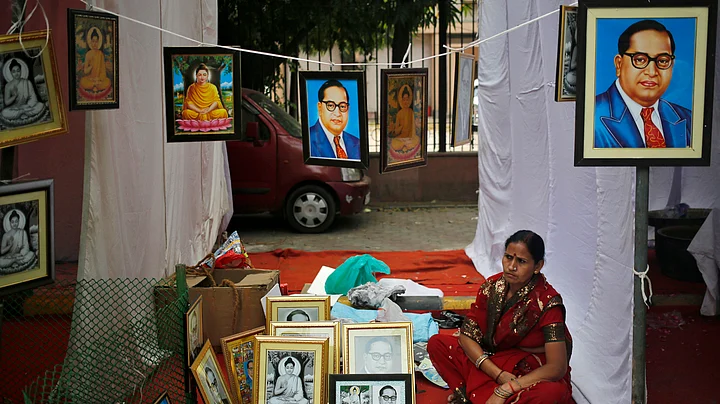The Rush for Bhimrao
Since April 14 – which marked the 125th birth anniversary of Bhimrao Ambedkar – both the BJP and the Congress have been vying to appropriate Ambedkar’s legacy, at least in part, to gain political mileage. The BJP particularly has its eye on polls in Bihar later this year.
Prime Minister Narendra Modi is going to head the committee that will oversee various activities and events to celebrate Ambedkar over the next year.
And a resurgent Rahul Gandhi is heading to Ambedkar’s birthplace, Mhow, to finally kick off the Congress’ celebrations.
The RSS too has planned a series of events to commemorate Ambedkar. Their mouthpiece Organiser had published a special 200-page edition on Ambedkar for his birth anniversary on April 14. The RSS is keenly arguing that the Dalit icon actually supported ‘ghar waapsi’.
In Pakistan and some provinces such as Hyderabad, Scheduled Caste Hindus were forcibly converted. Ambedkar warned them against it and told the converted Hindus they would be welcomed back. In a way, he supported ghar waapsi.
– Prafulla Ketkar, Editor of Organiser to the Economic Times
Why Ambedkar, Why Now?
There’s the cynical explantation: that the desperate scramble for Ambedkar’s legacy is merely an extension of ‘vote bank’ politics. This would especially hold true after the BSP rout in the general elections, following which the national parties are keen to capitalise on the Dalit vote in the Hindi Belt.
However, apart from the pragmatic considerations of electoral politics, there is much to be said for Ambedkar as a man whose legacy fits in perfectly into post-liberalisation India.
There’s an Ambedkar we know from our school books: brilliant legal scholar, draftsman of the Constitution and exemplary Dalit icon. But if all this were true, why was he largely ignored by political parties for decades? What has changed?
Ambedkar received the Bharat Ratna in 1990 - at a time when India was on the cusp of economic liberalisation and dealing with anti-Mandal protests. Ambedkar suddenly appeared to be the perfect founding father of the nation – ripe to be celebrated at last.
He came from one of the most downtrodden communities in the world and rose to be one of the most erudite scholars of his time. Unlike Nehru or even Gandhi, Ambedkar did not come from privilege. For a young, aspirational India, he is certainly the ideal idol.
His egalitarian credentials too, are beyond reproach - right through his life he was one of the most ardent spokespersons for the rights of Dalits, women and laborers.
But most importantly for India’s major Centre and Centre-Right parties, Ambedkar was an economic Liberal. He believed in the power of capitalism, and was sure that the free market would liberate India’s most vulnerable sections from the grip of feudal and caste inequality.
It is this mix – the egalitarian and the capitalist – that makes Ambedkar a prime candidate for every major national party to appropriate, in today’s India.
(At The Quint, we question everything. Play an active role in shaping our journalism by becoming a member today.)
